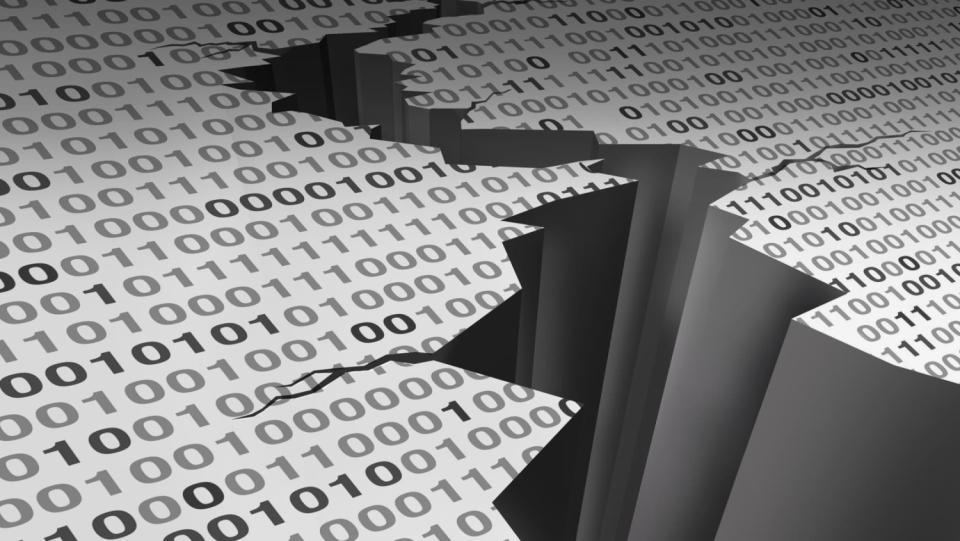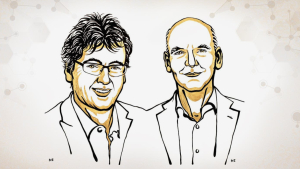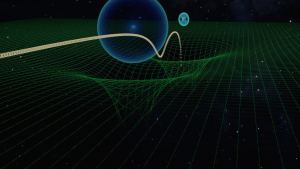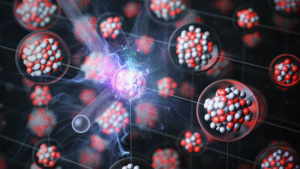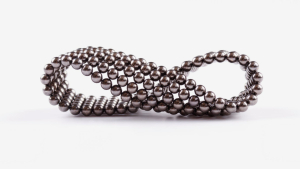Every day you come into contact with statistics in the media. But it is not always easy to interpret them appropriately. During her doctoral thesis in the abstract field of number theory, the Dutch mathematician Ionica Smeets realized that it is very difficult for lay people to find popular scientific explanations of applied mathematics, and decided to change that.
In the meantime, Smeets writes for daily newspapers, writes books or talks about her field on television. She is now well known in her home country. In order to convey between science and the public, Smeets has a professorship for science communication at the University of Leiden. There she examines how research results can be presented and presented successfully so that they are as understandable as possible. On the other hand, she explains lay people in lectures on how to expose misguided statistical conclusions.
In the course of her Nature Marsilius visiting professorship in Heidelberg, she spoke about misleading statistics, their avoidance and better communication between scientists and the population.
What is your favorite example of a misguided statistical conclusion?
Ionica Smeets: In the Netherlands, it was often argued that chocolate could cause migraines. I actually know many people with migraines who don't eat chocolate because of it. A few years ago, however, it was discovered that the mechanism works exactly the opposite: before a seizure, there are certain reactions in the body that cause you to crave fat and sugar.
Wrong conclusions are really often found. When did you realize that you had to fight it?
I have been led by lectures on manipulated statistics for a long time, simply because I find it important. The real meaning became clear to me, especially when a lawyer came up with me a few years ago and told me that he had gained a case through one of my lectures. I was happy and asked if he could expose false claims of his counterpart. But he just laughed and said that on the contrary, he used what they had learned to create a misleading table. And he was very proud of it. Then it became clear to me: When you show someone how misinformation spread, you also teach how you can do it yourself.
What was your reaction to this?
First I wanted to stop keeping such lectures. But then I thought you have to talk much more about these things instead. Because if the other side knew about it, she would not have been fooled.
Have you fallen for a misrepresentation of statistics yourself in the past?
Oh yeah. And I'm still doing it. Statistics are an area in which you can always do something wrong. It is so easy to fall for it. If one of my research projects contains a lot of statistics, I always ensure that an expert is on board. People often assume that as a mathematician you can also master statistics, but that is not true. It is slightly messed up with probabilities. I learned not to trust my intuition.
What needs to be done to avoid such misunderstandings?
There are studies that have dedicated themselves exactly to this question. For example, it happens that a research work discovers a connection and the associated press release speaks of cause and effect - this is usually presented in the media. However, if the university communicates correctly, the studies also do most media. It is therefore important to pay attention to correct communication in universities. The more precisely you get, the better the resulting journalistic contributions.
That's why they encourage scientists to better communicate with others about their work.
Yes. Because there is a lot to do. I find it very interesting how people blame each other. Universities claim that the media would exhilarate topics and not understand properly. Or the school is to blame that children have to be trained better. Journalists, on the other hand, complain that universities would worry more about their image than their research. Everyone points to the other.
And who do you think is right?
You can improve a lot, but you should start at the universities. Science should feel more responsible. That was the reason why I went back to the university.
What are you doing there?
I lead a master's degree in which the students learn how to communicate science well. And we also operate research. This is very exciting, because there are many things that we don't know how they really work. Especially if you don't just want to inform, but want to get people to change their behavior.
How does that work?
It is extremely important how to communicate something. For example, I talked to a scientist about the fact that for most people, anecdotes and narratives are much more convincing than numbers. He didn't believe me. I showed him statistics and studies on this, but he did not let himself be convinced. And then he actually retuned himself with an anecdote. As he told me shortly afterwards, he owns a motorboat. My colleague said that everyone knows that you can not swim in the water with the engine running. At a friend of his, a child got into the engine and had to go to the hospital – in the end, fortunately, everything turned out fine. But this story was so imprinted on my colleague that he was much more careful afterwards. This one anecdote was so much more impressive than all the statistics and rules he knew so far.
How do you scientifically examine which form of communication is most suitable?
We deal with the question of how to communicate through videos during a pandemic. The background is that the WHO information videos differ greatly from the popular clips on YouTube that deal with Corona. That is why we work with filmmakers, technicians and anthropologists, which is very enriching. While the scientists almost only focus on the content of a recording, someone else, for example, thinks about how to get the sound over as possible.
And how do you find out if the content really resonates better?
We shot short videos in which one and the same actor conveys different messages. And then we ask test persons how they perceive the messages. In addition, we examined what the opinions are like when the actor, for example, sometimes acts as a scientist and sometimes as a salesman.
Corona is a good keyword. It is often heard that many people have lost their trust in science and journalism. What can you do to win it back?
If you look at the numbers, that's not true. Trust does not go back - at least in Europe. However, if you ask people in the EU how satisfied they are with the communication of scientists, most countries do very badly. So the population has the feeling that researchers do not do enough.
However, science communication is not always taken seriously – especially if you are aiming for a research career.
There is even a name for this: the Carl sagan effect. Sagan was a brilliant astronomer - and yet he was often not taken seriously because he was too popular and did too much on television. He also did great research and published a lot. Unfortunately, that still happens today. I try to change something with many other people. Not every single scientist is suitable to carry his knowledge to the outside world. But as a department, you should ensure that at least some do that.
Are the concerns justified? Are people involved in communication perhaps missing the time to concentrate on their research?
In fact, there are studies that show the opposite. Researchers who also work in science communication also do better in other areas: they publish more and are cited more often. There used to be the cliché that science communication was for students who are not so good. That annoyed me very much. Some were even explicitly advised to get involved in the area. Fortunately, that is changing.
In your opinion, how to make science communication more popular among researchers?
In the Netherlands, our current Minister of Science has contributed to this: The theoretical physicist Robbert Dijkgraaf, the director of the Institute for Advanced Study in Princeton. He did astonishing things, he kept live lectures on television. For an hour, more than a million spectators sounded, which he had to say about black holes and infinity. Nobody could say that he would do that because he was not good enough for research. Good role models are extremely important.







